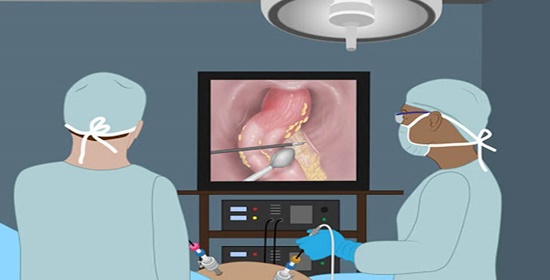Hernia surgery is often necessary, especially when a hernia causes symptoms, complications, or discomfort. The decision to undergo hernia surgery depends on factors such as the type and size of the hernia, the patient’s overall health, and the presence of any complications.
The surgical procedure typically involves the following steps:
1-Anesthesia: The patient is given either general anesthesia (where they are unconscious) or local/regional anesthesia (numbing the area) to ensure comfort during the procedure.
2-Incision: The surgeon makes an incision near the hernia site to access the protruding tissue.
3-Reduction: The surgeon gently pushes the herniated tissue back into its proper place within the abdominal cavity.
4-Repair: The weakened or torn abdominal wall is repaired and strengthened using various techniques. This may involve sewing the edges of the muscle together or reinforcing it with a synthetic mesh.
5-Closure: The incision is closed with sutures, staples, or adhesive skin glue.
Hernia surgery techniques vary depending on factors like hernia type, location, surgeon’s expertise, and patient health. Some use minimally invasive methods like laparoscopic for shorter recovery times. Consult your healthcare provider to determine if surgery is necessary based on your unique condition.
For More Detailed Information consult, Dr. Bhavesh Doshi one of the best Laparoscopic Hernia Surgery in Mumbai at Dhanvantari Hospital.



